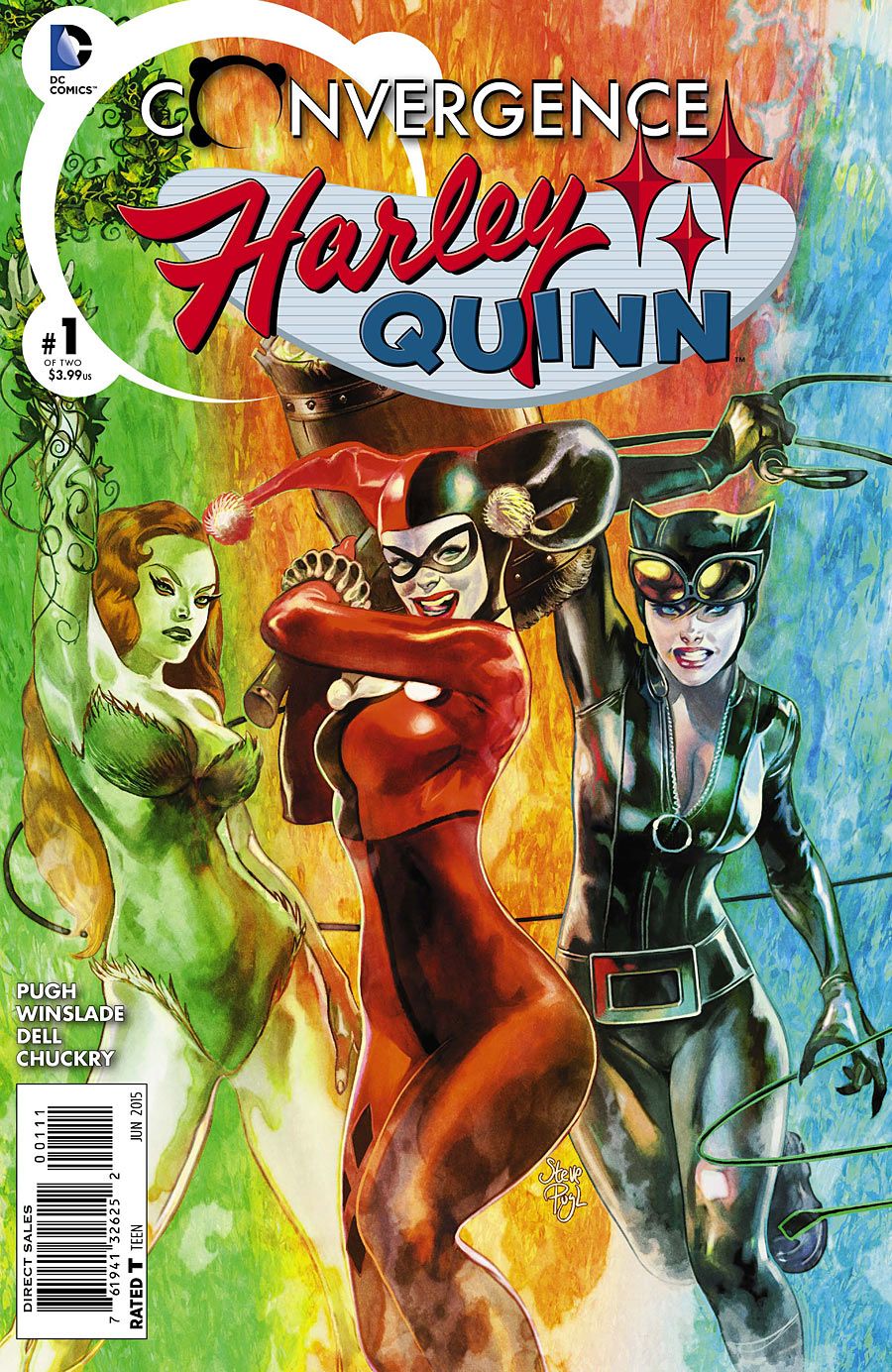Steve Pugh slides over from the drawing table to the writer's chair with "Convergence: Harley Quinn" #1 and the first thing that hit me is that Harley's dialogue feels off. Pugh uses "ya" instead of "you are" and somehow manages to avoid using "puddin'" altogether. Little nitpicky dialogue bits, sure, but that's what makes or breaks the character.
As for the story itself, Pugh gives readers a taste of the adventure that occurred when the domes appeared, then jumps forward a year to the time of "Convergence" when Telos drops the domes and issues his ultimatum. While other "Convergence" issues have followed the pattern of pairing two characters against each other before the final page of the issue, Pugh and crew focus on getting Harley back into fighting shape, which brings in her galpals from the "Gotham City Sirens" series.
Winslade is a fantastic artist for the crew at hand. His characters are human and vary in stature and expression, his storytelling is clean and he makes dynamic use of the full page, detailing every panel. When it comes to Harley Quinn or her soon-to-be opponent, Captain Carrot, however, Winslade's strengths are not as in play. Both characters look fine and recognizable, sure, but -- as Harley and Carrot tend to be more animated in nature -- someone with a looser, more cartoon-based style really should be on task for this adventure. I'm not saying Winslade can't pull it off; I just think his talents would have been better served in a tale with more gritty, "realistic" characters. "Convergence: Harley Quinn" #1 is just missing the zany, loose edge to the art. John Dell's inks keep everything tight and Chris Chuckry's colors are on task, giving this Gotham City a coat of grime and grit but illuminating the dome. The goldfish Harley imagines around her fingers have an ethereal quality compiled by the collaborative efforts of all three artists, while the Jerry Robinson-homage Joker serves as a haunting vision.
"Convergence: Harley Quinn" #1 gives readers a nice peek back into the madcap, potentially homicidal adventures of Harley prior to the 2011 "Flashpoint" event. It takes some artistic leaps from there, setting up the world around the character with a little more depth than some of the other "Convergence" tales, but it just doesn't pack enough zaniness in between the covers to make this a particularly memorable read. Pugh does a nice job of following format without falling into prescriptive writing, but his characters just need a little extra boost.

